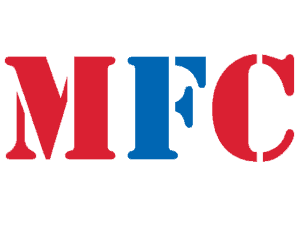АНУ-ын боловсролын системд хиймэл оюун ухаан хэрхэн нөлөөлж байна вэ?
Сүүлийн үед хиймэл оюун ухаан, ялангуяа ChatGPT гэх мэт аппликейшнуудын нөлөөгөөр АНУ-ын боловсролын системд томоохон өөрчлөлтүүд гарч байна. Сурагчид болон оюутнууд эдгээр технологийг ашиглан шалгалт, даалгавраа хялбархан гүйцэтгэж, хууран мэхлэх явдал гарч байгаа нь багш нарын санааг зовоож байна. Зарим сургууль, их дээд сургуулиуд эдгээр асуудлыг шийдвэрлэхийн тулд уламжлалт арга барил руугаа буцаж эхэлжээ.
Жишээлбэл, “Wall Street Journal” сонинд нийтлэгдсэн мэдээллээс үзэхэд, хэд хэдэн их сургуулиудад “цэнхэр дэвтэр” гэж нэрлэгддэг дэвтэрийн хэрэглээ эрс нэмэгдсэн байна. Техас мужийн A&M их сургуульд 30 хувиар, Флоридагийн их сургуульд 50 хувиар, Калифорнийн их сургуульд 80 хувиар өссөн байна. Энэ нь хиймэл оюун ухааны нөлөөгөөр үүссэн асуудлыг шийдвэрлэх нэг арга зам болоод байгаа юм.
Цэнхэр дэвтэрийн эрэлт нэмэгдэж байгаа нь энэ технологийн асуудлыг шийдвэрлэхэд тодорхой хувь нэмэр оруулж байгаа ч, энэ нь бүхнийг шийдвэрлэх арга зам биш юм. Жоржиа мужийн Ковенант коллежийн багш Филип Д. Бун, уламжлалт эссэ бичих арга барилыг орлох боломжгүй гэж үзсэн байна. Хичээлийн гадуур бичигддэг эссэг хичээлийн доторх богино хугацааны шалгалтаар орлуулах боломжгүй гэж тэрээр тэмдэглэжээ.
Ирээдүйн удирдагчид болох залуусын боловсролын чанарыг хадгалахын тулд цаашид илүү нарийн арга хэмжээ авах шаардлагатай байна. Жишээлбэл, AI ашиглалтын талаар шинэ хууль, дүрэм журам боловсруулж хэрэгжүүлэх хэрэгцээ байж болох юм. Учир нь хиймэл оюун ухаан хэрэглэж байгаа оюутнуудын 89 хувь нь гэрийн даалгавраа AI ашиглан гүйцэтгэж байна гэсэн судалгаа гарсан байна.
Эх сурвалж:
AI Cheating is So Out of Hand In America’s Schools That the Blue Books Are Coming Back
Pen and paper is back, baby.
Мэдээний дэлгэрэнгүй:
It’s no secret that AI is wrecking America’s educational system. With easy access to apps like ChatGPT—which can answer any question and also write full-fledged essays for you—high school and college students have begun to cheat their way through life, content to let an algorithm do the thinking, and the test-taking, for them. It’s no surprise, then, that some educators have gone analog, in an effort to stem the tide of anti-intellectualism sweeping the nation.
The Wall Street Journal recently did some digging and has discovered that sales of blue books have been climbing over the past year. Citing data from a number of large public universities, the newspaper notes that bulk purchases of the booklets have grown by leaps and bounds since ChatGPT’s launch in late 2022:
Sales of blue books this school year were up more than 30% at Texas A&M University and nearly 50% at the University of Florida. The improbable growth was even more impressive at the University of California, Berkeley. Over the past two academic years, blue-book sales at the Cal Student Store were up 80%. Demand for blue books is suddenly booming again because they help solve a problem that didn’t exist on campuses until now.
Surely those of us who came of age before the current one remember the blue book as an unfortunate staple of the pre-digital educational experience. I can certainly remember filling out my fair share of them in college, and I also remember them being no walk in the park. As a student, you’re often given a very short amount of time to frantically scrawl an “analytical” essay inside of one as a means of demonstrating to your professor your “mastery” over a particular subject. I remember the pages being too small, the ruled lines being too large, and the general experience of using the dreaded booklets to be no fun.
Now, however, as AI tears through America’s elite educational system, lobotomizing tomorrow’s young leaders as it goes, could it be that blue books have been refashioned from a villain of the pre-AI age to a hero for our algorithmically-poisoned times? More and more, it seems like they’re the dark knight that America’s illiterate masses needs. The Journal notes that Roaring Spring Paper Products, the family-owned paper company that produces a majority of the blue books that are sold on college campuses, admits that the new AI era has ironically been good for its business.
Yet while the return of blue books may be a step in the right direction, they surely aren’t a fix-all for the broad variety of ills caused by students’ AI-use. Philip D. Bunn, an assistant professor at the Covenant College in Georgia, recently wrote on his blog that the traditional essay (which, until ChatGPT came along, was a great indicator of a student’s intellectual capacity and was very difficult to fake unless you went to the trouble of hiring a ghostwriter) cannot be replaced by the in-class essay. Bunn writes that “the process of writing a paper outside of class cannot simply be replicated in a blue book exam, and something serious is lost if we give up entirely on the traditional essay, whether those essays are more analytic, argumentative, or research-based.”
Indeed, if the return of pen and paper is a promising sign, America’s educators aren’t out of the woods yet—not even close. A recent survey found that 89% of college students had admitted to using ChatGPT to complete a homework assignment. AI-detection tools designed to spot cheating also routinely fail. Increasingly, America’s youth seem to view their educations as a high-stakes video game to be algorithmically juked. In short, more drastic measures (like the formulation of new laws and regulations around AI use) may need to be taken if the onset of America’s aggressive stupidification is to be halted.

